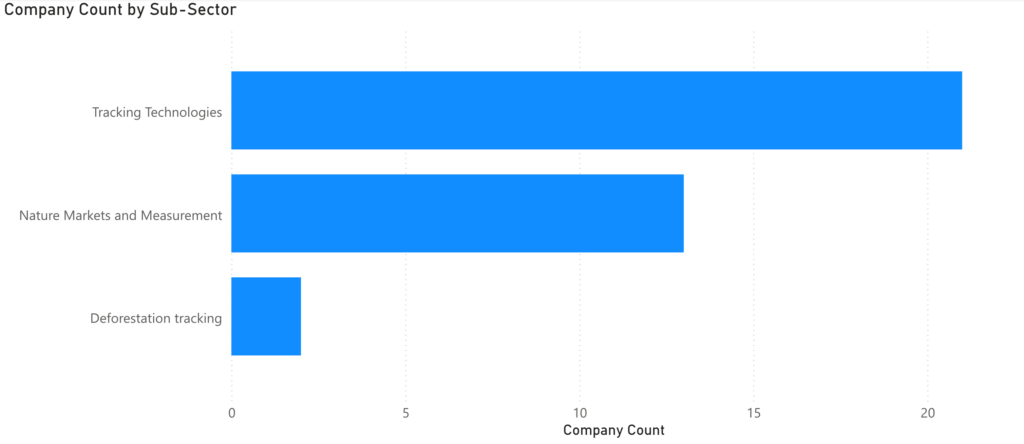How Blockchain Can Green Food Production
Chart of the Week – How Blockchain Can “Green” Food Production

In the same way as blockchain has proven its ability to assure transactions for cryptocurrencies such as Bitcoin, we find more than 30 startups seeking to apply the technology to prove the authenticity of sustainable and ethical food sourcing.
Blockchain comprises distributed data, stored in blocks, linked together in a chain using cryptography, shared among a computer network. Its most valued attribute is the creation of a secure and unchangeable ledger of records.
In cryptocurrency, blockchain helps maintain a decentralized record of transactions. Because food systems are characterised by long and complex supply chains, with potentially severe upstream environmental impacts such as deforestation, blockchain may have a useful role, to prove where food was produced, and how, as inputted by a smallholder farmer, for example.
Blockchain might also be used to prove the origin of and subsequent trade in nature and carbon credits, generated by environmentally friendly farming practices.
At New Food Finance, our focus is driving a green transition in food production. We follow more than 3,300 companies leading that transition. We have classified these according to more than 1,700 sectors, sub-sectors, markets and technologies that mitigate pollution, greenhouse gases or biodiversity loss, in this way creating a taxonomy to define this transition.
To date, we have identified 35 start-ups seeking to apply blockchain to food supply chains. In total, they have raised more than $50 million in company-level fund-raisings, from VCs and other funds. As the chart above shows, the activities of these companies are centred around three “sub-sectors” –
“Tracking technologies” to increase supply chain transparency, where examples include BanQu, ubloquity and ASQI
More specifically for “deforestation tracking” in supply chains, such as Origino, Savimbo and Dimitra
In “nature markets”, and other environmental markets, to track the origin of and trade in nature and carbon credits, such as Bluebell Index, BIOTA and STACS
New Food Finance: Sign up for a 7-day free trial
“Green Transition” Deals of the Week
SINGAPORE, June 25 ($3.3m) – Cellivate Technologies is a developer of cultivated cell culture media, aiming to improve cell production yield. Specifically, the company says that it has developed a patented nanotechnology which may enable cells to adhere better and accelerate their growth.
SOUTH AFRICA, June 24 ($1.3m) – Immobazyme specializes in the production of recombinant proteins through precision fermentation. It says its system provides a cost-effective and efficient solution for producing high-quality growth factors, making them more accessible.
COSTA RICA, June 25 ($2m) – ProNuvo cultivates Black Soldier Fly Larvae (BSFL), native to tropical countries like Costa Rica and Colombia, to decompose organic material, and convert this into fats and protein, as well as using frass for organic fertilizer.
What We’re Reading
South Chain Morning Post, CHINA (July 1) – China food scientists combine pork, chicken with rice in lab-grown meat advance
AgriBusiness Global, CHINA (July 1) – China Price Index: Establishing an ‘Ecology of Ag Innovation’ Is Key to China’s Supply Chain Success
Lab Manager, US (June 28) – Editing Plant Genomes to Further Sustainable Agriculture
The Star, CHINA (June 27) – Green farming to help China raise food security
AFN, US (June 26) – CRISPR: A game changer for livestock methane reduction?
The Financial Times, UK (June 26) – Gene editing breakthrough promises to boost fight against disease
The Financial Times, UK (June 25) – Denmark to charge farmers €100 a cow in first carbon tax on agriculture
CTECH, US (June 24) – New AgriTech startup wants to blend solar power and smart farming
